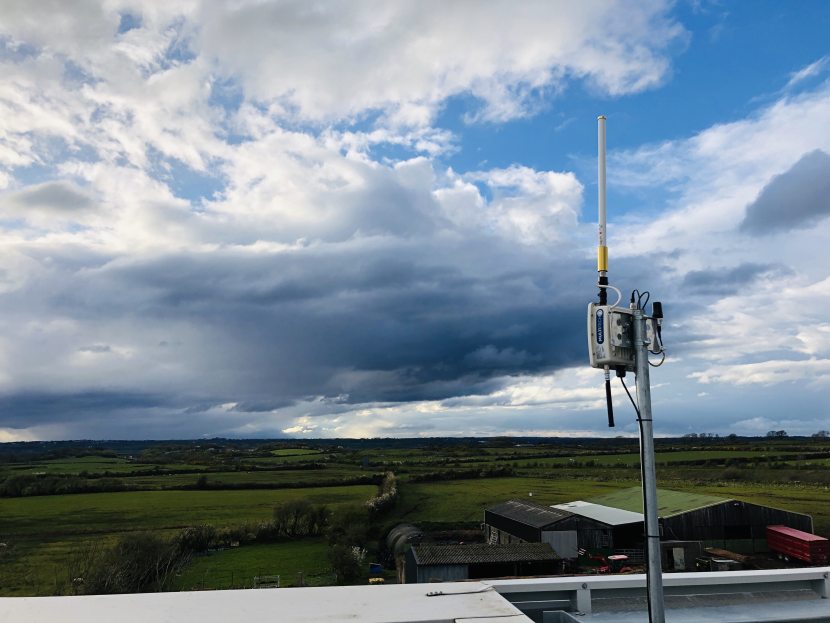
Numerous Welsh farms have installed low-powered smart sensors that exploit wireless technology, helping capture important data for their businesses.
LoRaWAN (Low Power Long Range Wide Area Access Network) radio frequency is not new – it is used globally in a multitude of situations.
It is especially beneficial in rural areas where communications infrastructure can fall short but it hasn’t been used extensively in Wales until now.
The Welsh government's Farming Connect scheme is funding the installation of LoRaWAN gateway devices on eighteen farms across Wales.
The gateways have a small antenna that can be attached on farm buildings on livestock, poultry and dairy farms.
These can connect to a myriad of sensors which collect data and relay it to dashboards on mobile phones and other devices, making analysis straight-forward.
Once the system is set up, farmers can use this data to inform and justify decision-making within their businesses.
An example is a farm in Wern, near Welshpool, where sensors have been placed both inside and outside free-range hen housing.
This will be used to monitor humidity, temperature and light levels as well as concentrations of ammonia and carbon dioxide.
The sensors will allow farmer Osian Williams to maintain optimum conditions for his 32,000-bird flock.
They are also linked to automatic misters which are prompted to spray non-infective bacteria at set times or when data collected from the sensors identifies spikes, to combat challenges from infective organisms.
Wern is one of 18 farms, which make up the Farming Connect demonstration site network, where sensors have or will be installed.
Sensors have been developed in conjunction with ag-tech companies and farmers to be a specific match for the project themes and the data collection requirements of these.
Dewi Hughes, Farming Connect Technical Development Manager, said: “We want to know if, and how, this technology can benefit the farming industry, so that the Welsh farming industry can lead the way on new technological developments.
"We are also mindful that this project could benefit the whole of rural Wales.’’
Each gateway has a significant geographical reach so farmers and others in the rural economy, beyond the demonstration sites, have the opportunity to explore and experiment with it, he added.
Matthew Macdonald-Wallace, a specialist in LoRaWAN technology, has worked with Farming Connect to install the gateways.
He said the possibilities the technology gives farmers were far ranging: “Because these sensors are low power they can run on 2 AA batteries for up to 10 years.
"It means they can be deployed across the farm, perhaps in soils or crops to pinpoint the best time to plant crops and they can be left there for years to capture and relay data to the farmer."
Dr Rob Shepherd of EvoMetric is providing the technical services. He explained that rural communications was 'always a challenge'.
"This long-range technology will also allow farms within range of the demonstration sites to trial sensors and apps and get early access to new developments within agriculture and technology."
The findings from the projects that the data is informing will be disseminated to the wider farming industry in the future, Farming Connect said.
